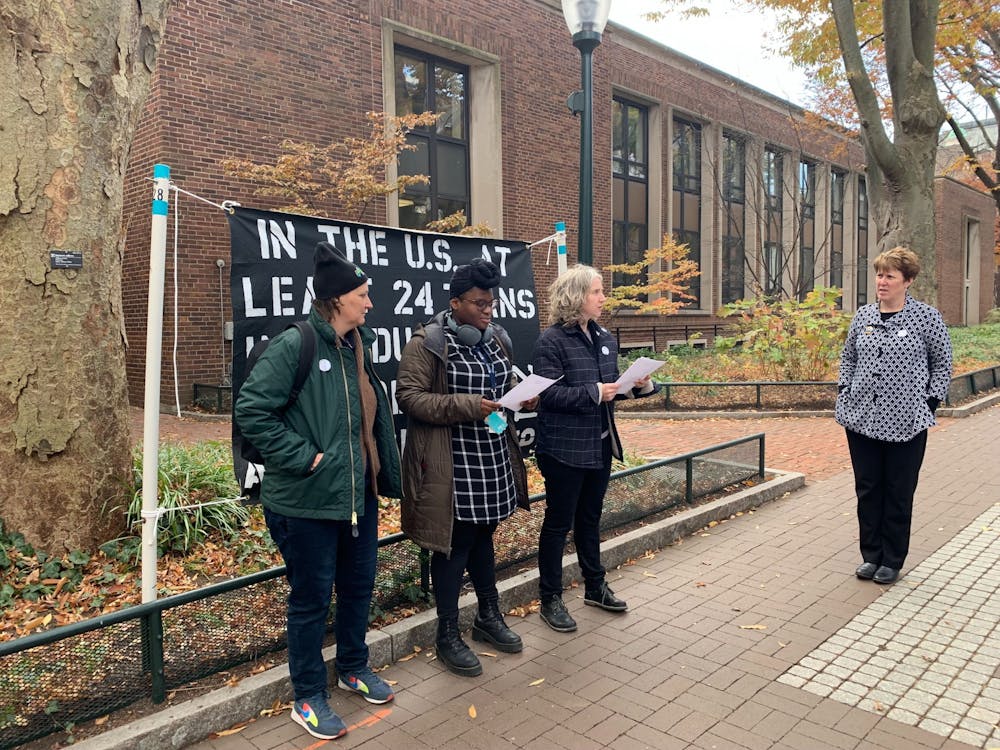In honor of Transgender Day of Remembrance, the Penn LGBT Center held a series of vigils on Locust Walk to memorialize the transgender, nonbinary, and nonconforming people who were killed in 2019.
Every hour, from 8 a.m. to 8 p.m., students and faculty gathered to read the names of the transgender people who were killed and share words of remembrance. For each vigil, a different group of students and professors assembled.
LGBT Center volunteers hung up transgender flags on Locust Walk in front of Steinberg-Dietrich Hall, featuring black and brown stripes in the middle to signify the disproportionate violence against people of color.
The names of the transgender or gender nonconforming individuals who were murdered in the United States in 2019 were printed onto flags on Locust Walk. Some of these names included Dana Martin, Jazzaline Ware, and Ashanti Carmon.

LGBT Center volunteers hung up transgender flags on Locust Walk in front of Steinberg-Dietrich Hall.
In the past, Transgender Day of Remembrance events at Penn consisted of evening vigils, where a group of people gathered at a location to honor the victims of violence, said Loran Grishow-Schade, an intern at the LGBT Center and a graduate student at the School of Social Policy & Practice.
This year, however, the LGBT Center chose a more interactive and public approach that incorporated direct action. These 10-minute vigils were meant to embody the ideals of remembrance, resistance, and resilience.
“This isn’t a student issue, it’s not a staff-faculty issue, it’s a University issue, it’s a Philadelphia, Pennsylvania, United States, world issue. So bringing that conversation into a public space every hour, on the hour, felt important to do,” Grishow-Schade said.
RELATED:
'FGLIQ' launches as a leading group for first-generation, low-income queer students
Transgender activist Laverne Cox urges Penn to prioritize mental wellness at SPEC event

These 10-minute vigils were meant to embody the ideals of remembrance, resistance, and resilience.
Each vigil featured different volunteers, including students and professors from across departments and multiple cultural resource centers on campus. Volunteers shared words of remembrance and poems about the struggles that transgender people face that resonated with them.
“Another beautiful part about this project is that it is connecting folks who don’t necessarily connect, and it shows that there is unification within this process," Grishow-Shade added.
Fine arts professor Sharon Hayes was one of the 18 faculty and staff members who read the names and called for a moment of silence at the event.
“There’s a crisis in this country and around the world that is dependent on our silence and our forgetting. For me, I insist to remember and to remember collectively with all of you," she said. "These lives matter, trans lives matter, and we must remember, every day and every month, and every year.”









